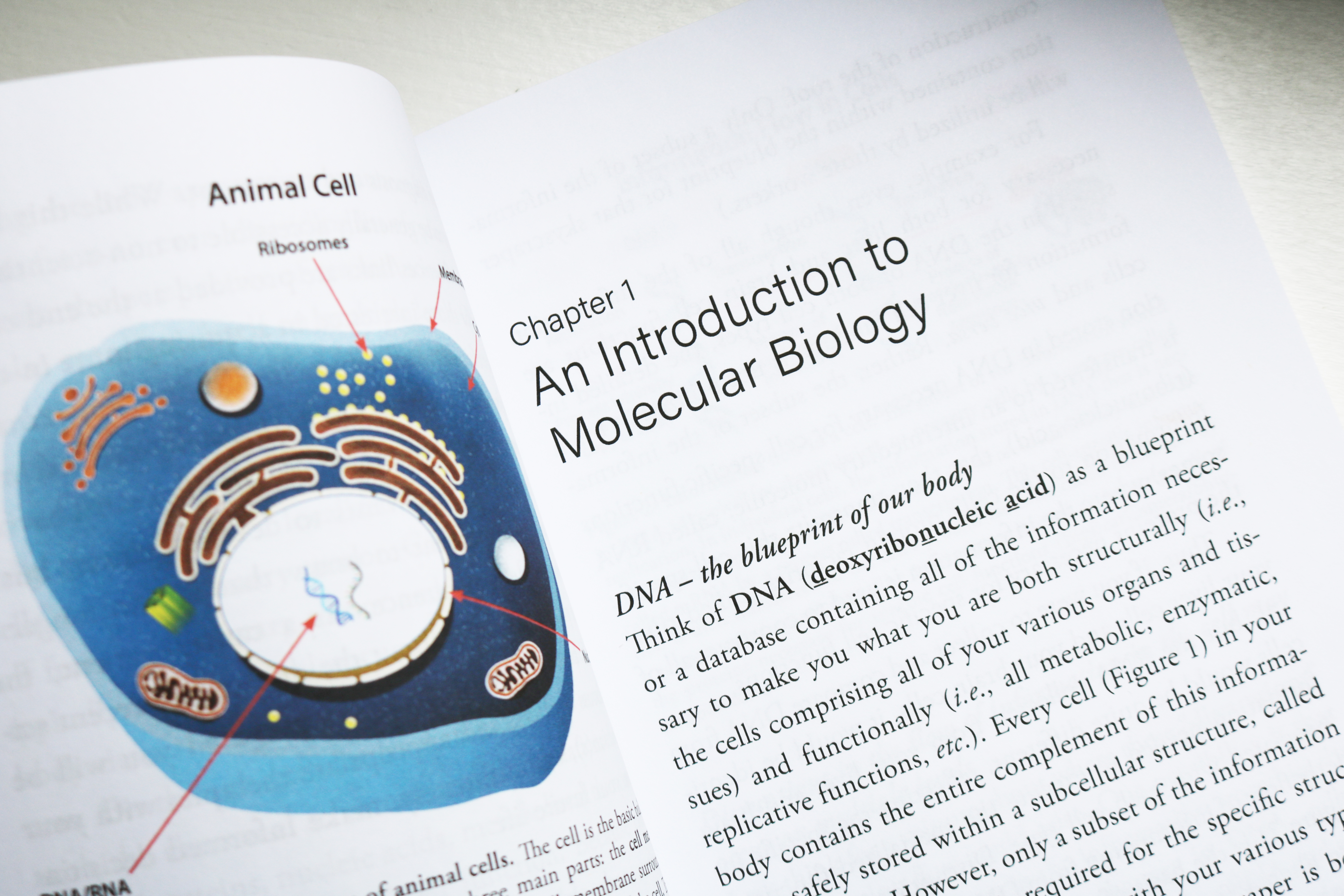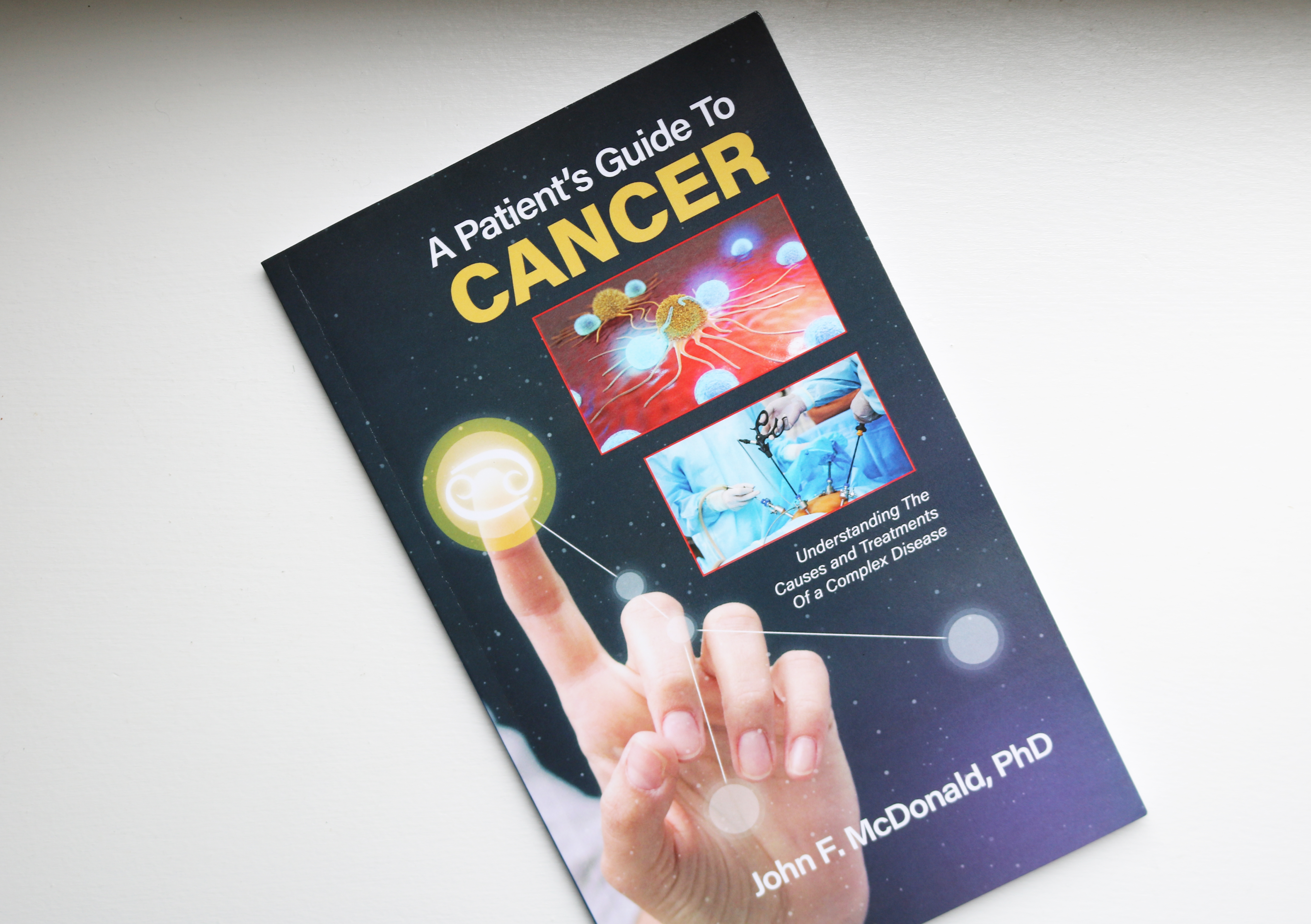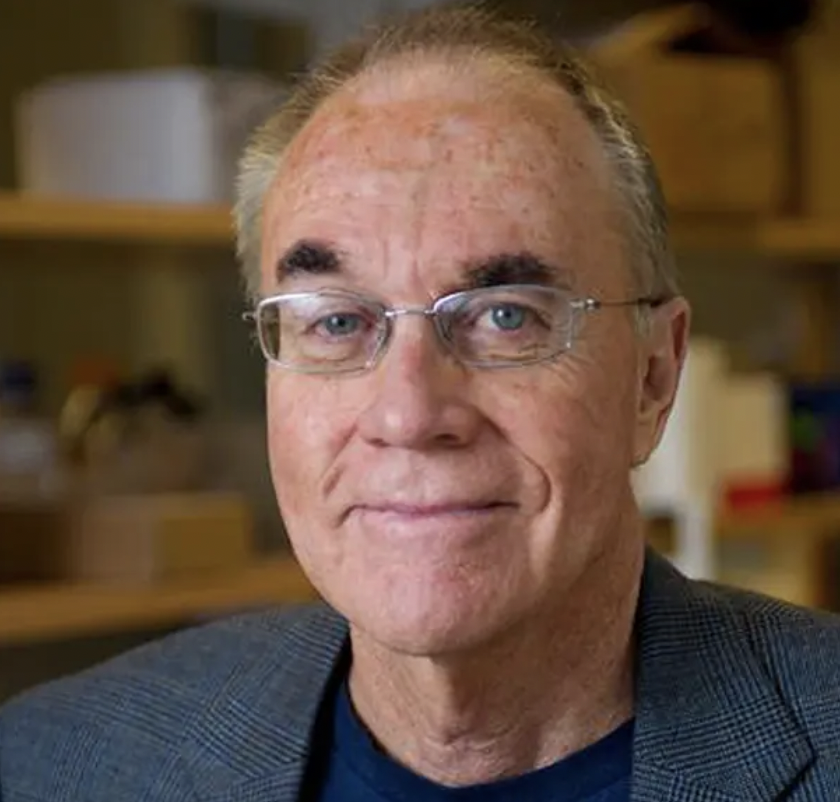There are times when John McDonald, emeritus professor in the School of Biological Sciences and founding director of Georgia Tech’s Integrated Cancer Research Center, is asked to share his special insight into cancer.
“Over the years, I’ve gotten calls from non-scientist friends and others who have been diagnosed with cancer, and they call me to get more details on what’s going on, and what options are available,” said McDonald, also a former chief scientific officer with the Atlanta-based Ovarian Cancer Institute.
That’s the primary motivation why McDonald wrote A Patient's Guide to Cancer: Understanding the Causes and Treatments of a Complex Disease, which was published by Raven Press LLC (Atlanta) and is now available at Amazon or Barnes and Noble in paperback and ebook editions. The book describes in non-technical language the processes that cause cancer, and details on how recent advances and experimental treatments are offering hope for patients and their families.
A book for the proactive patient
McDonald said he couldn’t go into detail for every type of cancer, but provides a generally applicable background for the disease. For those who want more information, he provides links to other resources, including videos, that provide more detail on specific types of cancer. “There’s not much out there in one place for patients who want to understand the underlying causes of cancer, and the spectrum of therapies currently available,” he said.
McDonald, who was honored in January by the Georgia Center for Oncology Research and Education (CORE) as one of “Today’s Innovators,” also didn’t want A Patient’s Guide to Cancer to be a lengthy book, and it checks in at only 86 pages.
McDonald believes that when patients talk to their physicians about cancer treatments, they should ideally have a basic understanding of the underlying cause of their cancer, as well as a general awareness of the range of therapies currently available, and what may be coming down the road in the future.
“My book is specifically designed to provide newly diagnosed cancer patients who are not scientists with this kind of background information, empowering them to play a more informed role in the selection of appropriate treatments for their disease”.
The current experimental treatment landscape; McDonald’s 2023 research goals
McDonald’s own cancer research has led to two related startup companies, co-founded with School of Biological Sciences colleagues.
McDonald is working with postdoctoral researcher Nick Housley on using nanoparticles to deliver powerful drugs to cancer cells while sparing healthy tissue. The other company, founded in collaboration with Jeffrey Skolnick, Regents' Professor, Mary and Maisie Gibson Chair & Georgia Research Alliance Eminent Scholar in Computational Systems Biology, uses machine learning to create personalized diagnostic tools for ovarian cancer.
He and his lab team are also preparing to submit a research paper that builds off their 2021 study on gene network interactions that could provide new chemotherapy targets for breast cancer. That paper focuses on the three major subtypes of breast cancer. McDonald and his colleagues will also soon submit another study detailing genetic changes that happen with the onset and progression of ovarian cancer.
When it comes to current experimental treatments, McDonald says he’s especially excited about the potential of cancer immunotherapy, which uses the body’s own immune system to fight cancer cells. But he writes in A Patient’s Guide to Cancer that because these drugs are also delivered systemically, healthy tissues can also be affected, potentially leading to autoimmunity or the self-destruction of our normal cells.
“In the future, I believe many of the negative side-effects currently associated with the system-wide delivery of cancer drugs will be averted by the use of nanoparticles designed to target therapies specifically to tumors”.
For More Information Contact
Writer: Renay San Miguel
Communications Officer II/Science Writer
College of Sciences
404-894-5209
Editor: Jess Hunt-Ralston, Communications Director
College of Sciences





